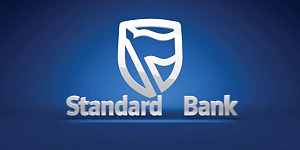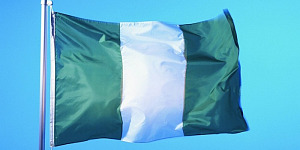Fitch Ratings has affirmed Nigeria's Long-Term Foreign-Currency Issuer Default Rating (IDR) at 'B' with a Stable Outlook.
A full list of rating actions is at the end of this rating action commentary.
KEY RATING DRIVERS
Nigeria's 'B' rating is supported by the large size of the economy, a low general government (GG) debt-to-GDP ratio, small foreign-currency (FX) indebtedness of the sovereign and a comparatively developed financial system with a deep domestic debt market. The rating is constrained by particularly weak fiscal revenue, comparatively low governance and development indicators, high dependence on hydrocarbons and continued weak growth and high inflation.
Nigeria continues to contend with external liquidity pressures that were magnified by the 2020 pandemic-related shock and resilience to adverse external developments is weak. Despite gradual and moderate exchange-rate depreciation over the last year, the naira remains overvalued. Persistent double-digit inflation under a tightly managed multiple-window exchange-rate regime could drive further misalignment of the currency relative to fundamentals. We forecast inflation to average 16.0% in 2021 and 13.4% in 2022, driven by a number of cost-push factors.
Currency overvaluation will hamper a correction of external imbalances. Nigeria's long-standing current account (CA) surplus shifted to a deficit of 4.2% of GDP in 2019, driven by a fast rise in imports. We estimate a stable CA deficit of 4.2% of GDP in 2020, as import compression from domestic demand contraction and restrictions on FX access offset a slump in hydrocarbon exports and remittances. The CA deficit will narrow to an average of 1.6% of GDP in 2021-2022, much smaller than the forecast average median of 4.3% for the 'B' rating category, supported by the recovery in oil prices.
Downward pressures on the naira and continued CA deficits could strain international reserves, amid a subdued outlook for FDI and portfolio inflows. At their current level, international reserves would cover five months of the forecast current account payments in 2021, better than the forecast 'B' median of 4.2 months. Government plans to enhance external concessional borrowing and a possible sovereign Eurobond issuance could support FX reserves.
The Central Bank of Nigeria (CBN) estimates it has cleared through spot and forward FX sales most of the backlog of FX demand by foreign portfolio investors, which it evaluates at around USD2 billion. However, Fitch believes a backlog of FX demand for imports and capital repatriation will still constitute a sizeable drain on reserves should FX supply normalise. Continued FX restrictions could protect reserves, but protracted hard-currency scarcity would harm production, spur inflation and forestall a recovery in international investor confidence.
The outlook for public finances is mostly a function of oil revenues, given the low level of non-hydrocarbon fiscal receipts, while there is little leeway to further reduce spending. We foresee little progress on boosting tax revenue in the medium term due to compliance issues, administrative capacity challenges and resistance to the phasing out of tax credits.
We forecast a narrowing in the GG deficit to 4% of GDP in both 2021 and 2022, from 6.3% in 2020, better than the forecast 'B' median of 7% and 4.8%, respectively. The improvement in the fiscal deficit will be driven by the rebound in oil prices to well above the level assumed in the 2021 budget and the revival in economic growth. A USD10 change in the oil price per barrel relative to our baseline would affect the GG balance by around 0.5% of GDP, while a 10% change in annual average oil production would impact the GG deficit by 0.3% of GDP.
Social resistance to the ongoing reforms of costly energy subsidies raises risks to our budget forecast, as similar reforms have been reversed in the past due to social pressures. The government has so far held to its March 2020 commitment to the full elimination of the implicit fuel-price subsidy, but retail prices are yet to be adjusted to the rise in benchmark prices in 2021, which could mark a de facto return of the implicit subsidy. Stiff labour union opposition has also delayed a further adjustment of electricity tariffs, which are unlikely to reach cost-recovery levels in 2022 as targeted by the government, in our view.
GG debt will further rise to 32.6% of GDP in 2022, from less than 13% a decade earlier, but will remain much below the forecast 'B' median of 70%. The key challenge to debt sustainability stems from low fiscal revenue. The GG debt-to-revenue ratio will rise to 395% in 2022 on our forecasts, versus a forecast 'B' median of 325%. Debt interest cost will consume 24% of revenue in 2022, against a 'B' median of 11%. The picture is much weaker at the federal government (FGN) level, with forecast debt-to-revenue and interest-to-revenue ratios of 1,031% and 64%, respectively, in 2022, reflecting a higher share of the FGN in GG spending and debt than in GG revenue.
The government has plans to securitise the loans it contracted under CBN's Ways and Means (W&M) facility in recent years. Government borrowing from the CBN since 2015 has led to the accumulation of a NGN13.2 trillion (8.6% of GDP) balance under the W&M facility end-September 2020, representing around 28% of the total GG debt stock, by our estimates. Repeated recourse to large central bank financing could complicate macroeconomic management and hinder the central bank's ability to tame inflation, particularly if it exceeds limits set under existing institutional safeguards, in our view.
The authorities have not solicited any relief under the G20's Debt Service Suspension Initiative (DSSI). The benefit from joining the initiative in 2021 would be small. We do not expect the government to request any debt relief under the G20's Common Framework as the authorities attach high importance to access to international markets.
Average growth in 2020-2021 will be in line with rating peers. We expect GDP to grow by 2% in 2021, following an 1.8% contraction in 2020, reflecting favourable base effects and the rise in oil prices. The recovery will be held back by FX scarcity, infrastructure gaps, electricity outages and security-related disruptions. The long-awaited Petroleum Industry Bill is currently being examined by parliament. If approved, it could improve the medium- to long-term outlook for investment in the oil sector, which continues to be clouded by insecurity and governance challenges.
ESG-Governance: Nigeria has an ESG Relevance Score of '5' for both Political Stability and Rights and Rule of Law, Institutional and Regulatory Quality and Control of Corruption, as is the case for all sovereigns. Theses scores reflect the high weight that the World Bank Governance Indicators have in our proprietary Sovereign Rating Model.







































